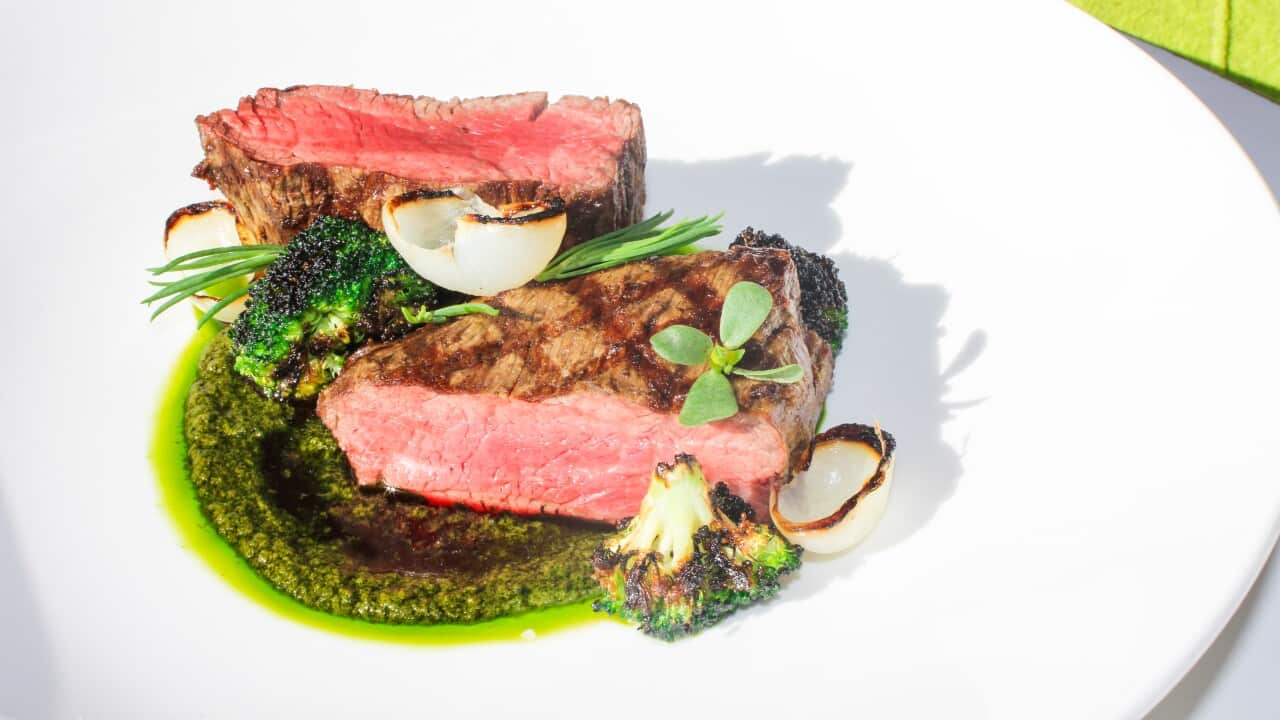released this week in the , suggests that substituting lean poultry for red meat could decrease your risk of breast cancer.
International researchers analysed the data of around 42,000 women from the USA and Puerto Rico, and then followed their results for almost eight years to determine if an association between meat consumption and the risk of breast cancer exists.
...our study does provide evidence that substituting poultry for red meat may be a simple change that can help reduce the incidence of breast cancer.
During the follow-up, 1,536 invasive breast cancers were diagnosed. The findings revealed that women who ate the highest amount of red meat had a 23 per cent higher risk than those who ate the lowest.
Red meat for the purpose of the study included beef, veal, pork, lamb and game meat.
On the flip side, they observed that females who ate the most poultry had a 15 per cent lower risk of invasive breast cancer than those eating the least. These women consumed lean chicken, turkey, Cornish hens, duck, goose, quail and pheasant/game birds.
The effect of poultry and red meat consumption on breast cancer risk demonstrated in the study was particularly strong for post-menopausal invasive breast cancer.
There was no link shown between the way the meat was cooked and breast cancer risk.
“While the mechanism through which poultry consumption decreases breast cancer risk is not clear, our study does provide evidence that substituting poultry for red meat may be a simple change that can help reduce the incidence of breast cancer,” says the study’s senior author Dr Dale P. Sandler of the
The value of a food swap
Accredited Practising Dietitian at Lauren Atkins, specialises in oncology dietetics and is connected to
She tells SBS that although the research does not demonstrate cause and effect and only shows an association, it is of value.
“This study is interesting because it links red meat with a whole different tumour stream,” says Atkins. "This means we are learning more and more about how our food choices impact our cancer risk.”
Atkins explains that the food swap mentioned in the research could benefit many women, depending on the amount of red meat they consume on a regular basis.
“It suggests that reducing red meat intake is beneficial and increasing lean poultry is beneficial. So if you combine the two [dietary strategies] and swap out your red meat for poultry, that is [possibly] a very practical piece of advice on how to reduce breast cancer risk.”
This means we are learning more and more about how our food choices impact our cancer risk.
Genetic risk and your diet
This study looked at women enrolled in the , a cohort study evaluating environmental and genetic risk factors for breast cancer.
Eligible participants were women aged 35 to 74-years-old who had no previous diagnosis of breast cancer and were sisters or half-sisters of women diagnosed with breast cancer.
The researchers acknowledged that the women studied may have a higher risk of breast cancer due to their genetics.
READ MORE

What to eat to prevent cancer
According to , around five per cent of breast cancers occur in women who have inherited a single gene abnormality from their mother or father, putting them at greater risk of developing breast cancer.
Abnormalities in the well-known genes, BRCA1 or BRCA2, occur in about one in 400 Australian women. These genes are more common in some ethnic groups. For example, they occur in about
“The fact is if you have a higher risk of breast cancer due to genetics, you can’t lower your risk by changing your genetics or cultural heritage,” says Atkins. “But you may be able to lower your risk by changing the way you eat and move.”
There's no need to totally drop red meat
also supports the study’s findings. However, she stresses that it’s important that women don’t over-react to its dietary messages about red meat.
"The research isn’t saying that red meat is bad for us, just that a large intake of red meat may be,” says McGrice. “I believe it’s worth checking your red meat consumption and ensuring that you’re not consuming over the maximum recommendations of 455g per week.”
Atkins adds that women should not consume too much lean poultry but instead, include it as part of a balanced diet.
The fact is if you have a higher risk of breast cancer due to genetics, you can’t lower your risk by changing your genetics or cultural heritage. But you may be able to lower your risk by changing the way you eat and move.
Dietary advice for vegans and vegetarians
Atkins cautions against vegetarians and vegans eating poultry in order to reduce their risk of breast cancer, as per the study’s findings.
“What’s really important to know is that there is also evidence out there to suggest that – may also reduce your risk of breast cancer.
“So for vegans and vegetarians, if you have a nutritionally complete diet that is tailored to you, it can be really powerful in reducing your risk of chronic diseases [and potentially breast cancer].”





